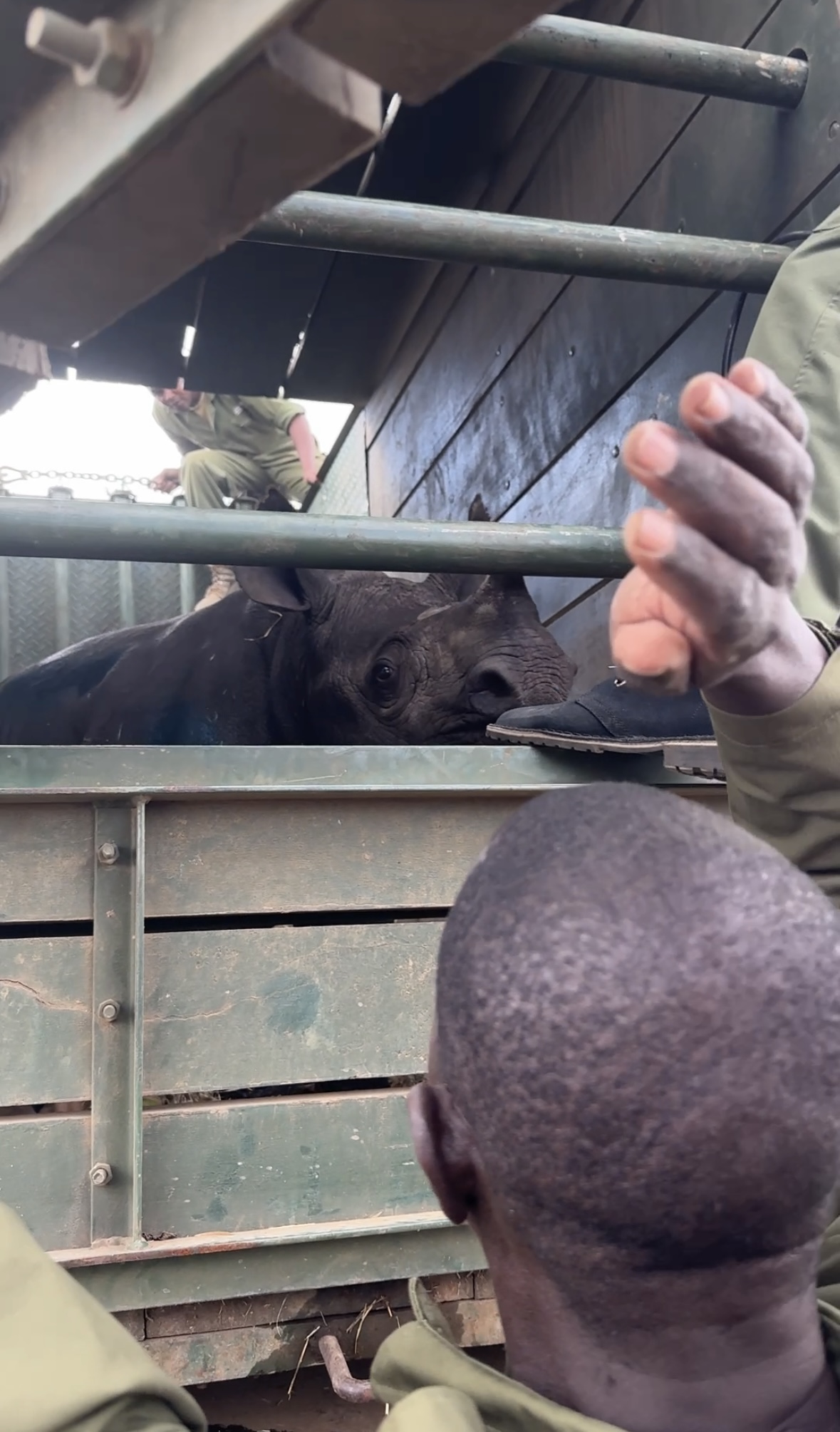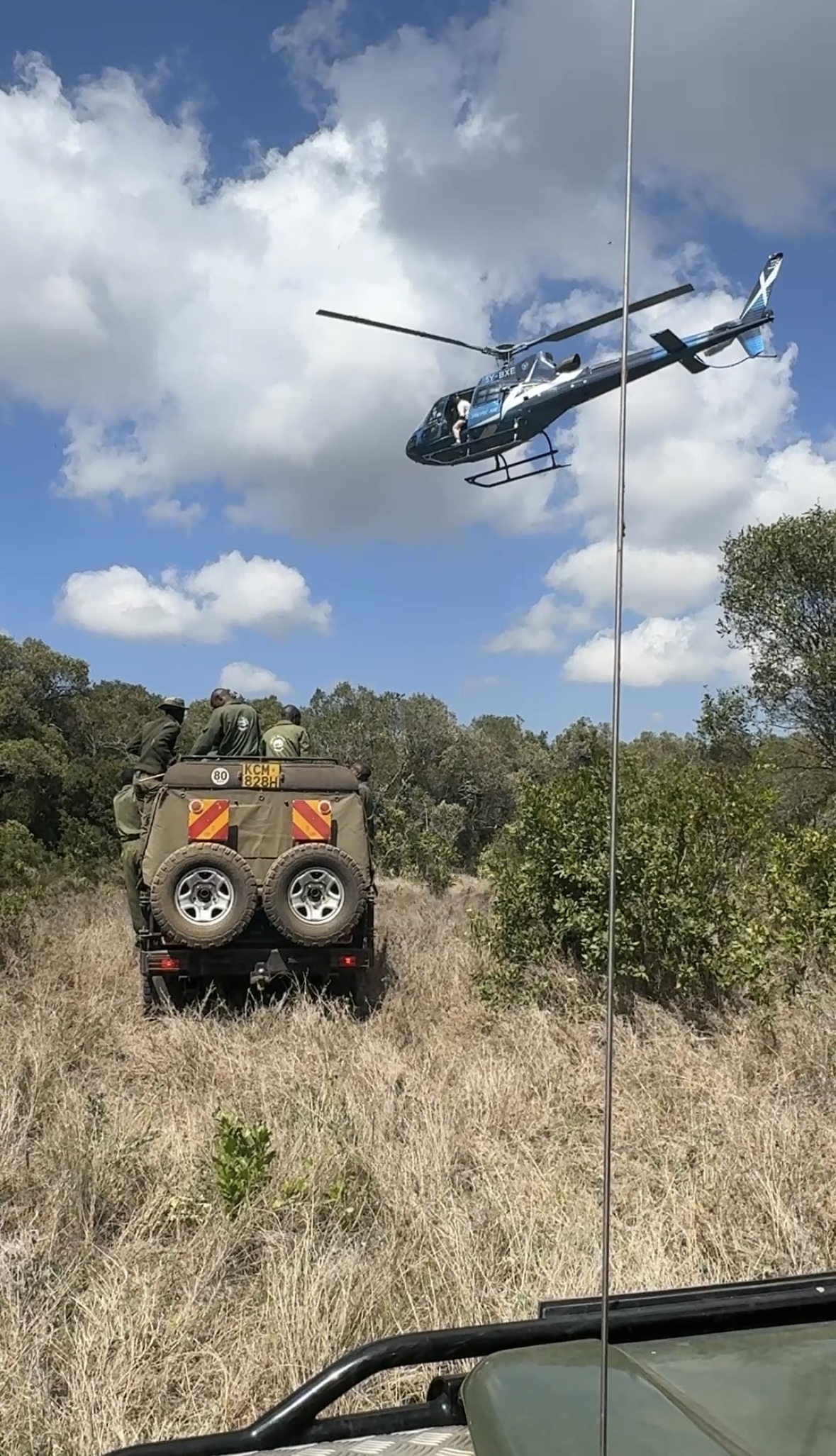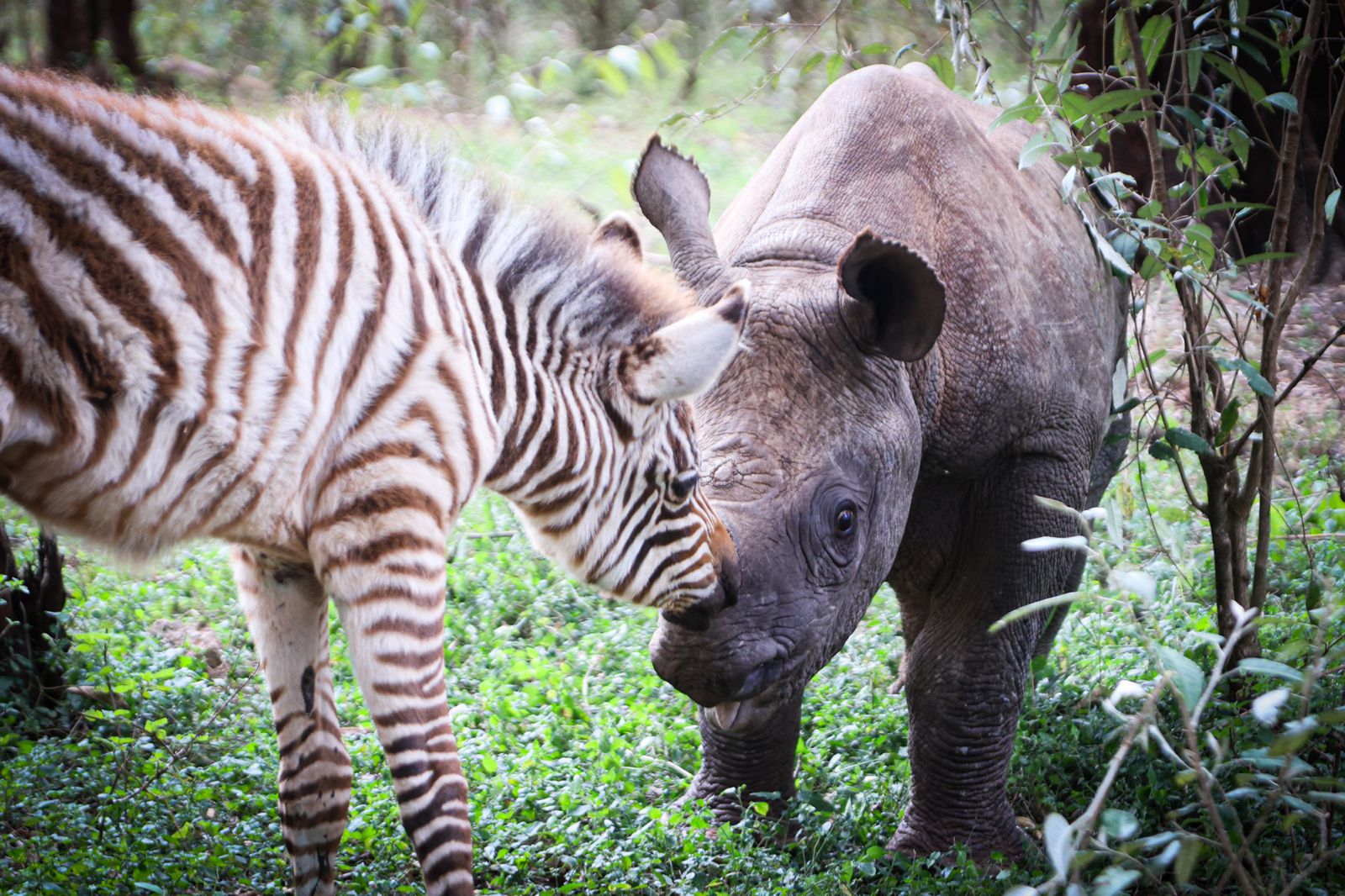On 7th September, Borana Conservancy rangers shared the sad news that one of our female black rhinos, Mumu, had been found deceased at the bottom of a cliff. Tragically, she left behind a seven month old male calf. The cause of death was believed to be an accidental fall while being pursued by a male rhino attempting to mate with her, this is a natural but unfortunate occurrence.

Because the calf was in difficult and rugged terrain, the Borana Conservancy rangers quickly deployed drones, airplanes and helicopters to track him. For two days, he navigated thick bush and deep valleys on his own, showing remarkable resilience. When the calf was finally located in the early hours of the 9th August, he had been alone for over 48 hours, and both the Borana Conservancy team and Kenya Wildlife Service (KWS) vets were concerned for his wellbeing.
With support from Tropic Air helicopters, the calf was safely guided uphill onto an open plain where he could be darted for translocation. The KWS veterinary team expertly handled the darting and relocation, and the young rhino was transported to the Sheldrick Wildlife Trust orphanage in Nairobi.

He is a strong and brave little calf, having survived two nights on his own and even managing to outsmart a lone male buffalo just before he was darted. We are confident that, under the care of the Sheldrick team, he will continue to thrive and live a long and healthy life.
Our heartfelt thanks go to the Kenya Wildlife Service veterinary team, the Borana Conservancy rangers, and Tropic Air for their tireless efforts along with Save the Rhino International for their continued support in protecting Borana’s rhinos and helping to make rescues like this possible.
Even in the face of loss, this story reminds us of the extraordinary teamwork and dedication that go into protecting every endangered species which calls Borana Conservancy home.

